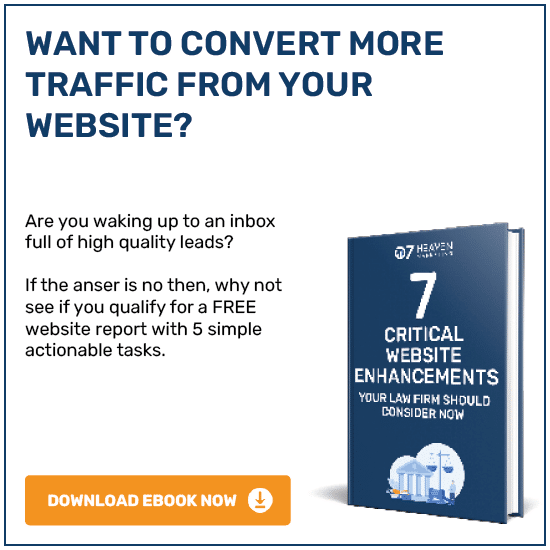There are over 152 million blogs on the internet, yes that many! With there being so many blogs, the competition is high. So how do you make sure that your blog is the most successful on the internet? With you in mind we have created this post to help you understand how to write a powerful blog post to outrank your competitors.
When you are writing a blog post it is vital to take into consideration each step of writing a powerful blog. These include the planning stage, the writing stage, and the promotion stage. Each of these stages are equally important as the other.
With in each of these stages there are certain steps to follow to make sure your blog is interesting and relevant. If you can achieve this, you are sure to have a blog that will delight and entertain your audience.
How to write a powerful blog post…
Stage 1: Planning
The planning stage of writing a blog is so important in producing content that will outrank your competitors. The planning stage is what allows you to create targeted and concise content around a relevant, interesting content.

Research A Relevant and Interesting Topic
The topic is pivotal to the success of the blog. If a blog is not written on a relevant, interesting topic the chances of anyone reading it is immediately low. But why is this?
Because there are so many sources of information on the internet it is vital to find a subject that is going to catch the readers eye. Some topics to write about to get your content notice may be:
- Current trending topics – The Coronavirus
- Topics that go against the grain – Why you think Piers Morgan is great
- Topics that always need to be answered – How to cook pasta
Finding an interesting relevant topic within your niche is the first step to creating a powerful blog that will outrank your competitors.
So how do you do the research?
Research can be done by anyone. A great place to start is by using the same search engines to research your topic that you will hope for your blog to rank on.
Google Search Engine – Google is excellent as it has lots of resources that will help you bring up your skill base around a blog topic. You can use other blogs, infographics, and articles. Google search engine also has an auto complete feature to help you understand relevant, topical subjects that you can write about.
Youtube – Youtube is an excellent source of information with hundreds of videos on any topic. It is helpful as it offers another form of collecting information in the form of a video.
Research gives your writing purpose
Research is the vessel that helps give your writing purpose allowing you to write a concisely. It will help your sentences flow correctly and make the message you are trying to get across clearer.

Determine your target audience
When you are planning your blog, it is important to work out the target audience that you will be writing for. Even within certain topics and niche, different blogs will need to be written for different audiences.
Create a Buyer Persona
Buyer persona’s help you target your content more personally at your audience to gain their interest. Think of who would be interested in your business and more specifically the blog you are writing.
Ask yourself these questions below and be as detailed as you can in your response to help develop your persona:
- What do they do?
- What industry are they in and how long have they been in that industry?
- What is their job title?
- Their business agenda?
- Their qualifications?
- The challenges they face on a day-to-day basis?
- What triggers them to look for a solution?
- What activities do they like to pursue?
- How old are they?
- Why do they work in the industry they’re in?
- Their aspirations and motivations?
- What would they change about their work industry if they could?
- What publications do they read?

Plan for SEO
If you are looking to write a powerful blog post that completely knocks your opposition out of the way, planning for Search Engine Optimisation is an essential step.
SEO is a marketing methodology that helps your content rank higher in organic search engine results.
When the search engines are crawling the internet, indexing pages on certain subjects, there are algorithms that decide on the appropriateness of a post and hence determine the ranking position of that piece of content. The tanking factor is determined by on-page and off-page SEO.
On-page SEO – the methodology that you can apply to your webpage to increase your rankings. This includes keyword optimisation, meta data, image alt text and other factors.
Off-page SEO – the factors that effect your rankings that are not related to your page or website. Off-page SEO focuses on earning backlinks from other users within your industry. This increases a page’s authority score.
When planning for SEO, the most important part is focusing on the on-page SEO. The off-page SEO will come later in the process.
As mentioned above on-page SEO heavily relies on the use of keywords for the search engine to identify your product or service. When selecting keywords for your blog try to find low competition, longtail keywords (link to hubspot definition) that have a decent search volume throughout the month.
You can read our blog on SEO Practices for further information. (Link to SEO Blog)

Stage 2: Write your post
Writing your post is often seen as the most difficult step in creating a powerful blog. This is because writing itself is a hard skill. We have included some tips for you to think about when you are writing your blog:
Have a unique point of view – Go against the grain
Make your writing more interesting and fascinating. You can do this through visually appealing images targeted at what your target audience finds interesting. If humour comes naturally to you, then add humour but do not force it as this will be obvious to your readers. Try to tell a story that your reader can relate to that will spark their interest – you will be able to do this once you know your buyer persona more in depth.
Get your personality across
Every writer has a personal voice, style, and unique selling point. If you build a defined personality, then readers will grow familiar with your writing style and become loyal readers. Make sure that your writing style clearly demonstrates your brand personality – including voice, style, word choice, values, and USP – as well as matches your target audience’s needs and desires.
Create a sappy Headline
Your headline is what draws the reader to read, so make sure it summarizes your article and is short and catchy. Write your copy first and then pull out the strongest phrases. Write at least 5 different titles and then consider picking the strongest one.
Grammar
Make sure that your writing is clear and legible, if need be using a spell checker website. Grammarly is an excellent Google Chrome add-on tool that can help improve your grammar.
Use Images
As the saying goes, “a picture is worth a thousand words”, so pick an eye-catching image suited to your target audience that best describes your article.
Optimise your blog for SEO
When you are writing your blog think about SEO best practices. These practices will not only help with your organic rankings but will make the user experience as good as it can be.

STAGE 3: Once you have published your blog
Unfortunately, once you have published your blog the work does not stop there. A powerful blog post that outranks its competitors needs some help. In an ideal world your audience would read every post your publish but it does not always work like that.
Promote your Content
Promoting your content once it is written and published is essential in making your post pop. By promoting your content, you are increasing the chances that people will be able to read your blog. The more readers the better your blog will perform.
Share your blog on social media
Social media is a free and immensely powerful promotion tool if used correctly. It offers a fast-reliable way of reaching a targeted audience with the possibility of the reacting with them about your content in real time.
There are many social accounts you could choose from:
If you can create a platform with many followers to promote your content you will have a better chance of writing a powerful performing blog post.
Email your contacts
An email list is an excellent form of promotion as it allows you to send your blog to a ready-made list of recipients that have a likely expressed an interest in your niche in the past. A strong list of email recipients will help boost the visibility of your blog.
Turn your content into a lead generating machine
The use of call-to-actions (CTA) will really help you write a powerful blog post. A CTA is a specially designed action that collects data from a visitor of your website. It usually works by offering your reader a free download in exchange for their email and other bits of information.
CTA’s are important as they allow your blogs to start acting as a source of leads for your business. The ability to capture leads for your sales team increase your potential to grow as a business.

So how do you write a powerful blog to outrank your competitors?
Writing a powerful blog that outranks your opponent is a 3-step process, planning, writing, and promoting. If you can combine all three elements you have an excellent chance of creating content that outranks your competitors and wows your audience.
For further insights and guidance, we invite you to explore our blog at 07hm.co.uk/blog. Here, you’ll find a wealth of information tailored to the needs and challenges of SMEs navigating the digital landscape. Additionally, if you have specific questions or need personalised advice, don’t hesitate to reach out to us via email at info@07hm.co.uk or telephone on 01702 410663.






